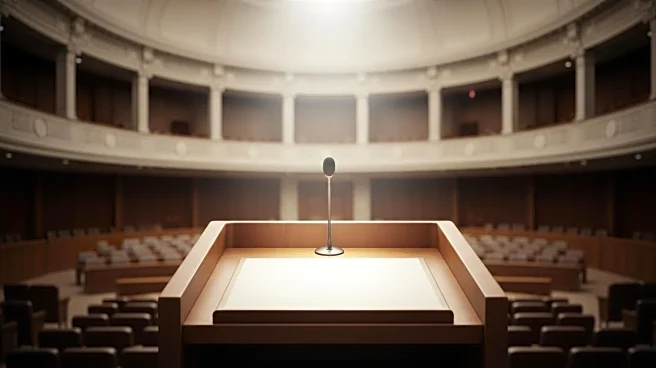What's Happening?
The United Nations General Assembly voted to allow Palestinian President Mahmoud Abbas to address its annual meeting of world leaders by video after the United States revoked his visa last month. The decision was supported by 145 countries, with only five voting against and six abstaining. This move comes amid ongoing tensions between the US and Palestinian leadership, reflecting broader geopolitical dynamics in the region. The video address allows Abbas to participate in the assembly despite the visa denial, ensuring his voice is heard on the international stage.
Why It's Important?
The UN's decision to permit President Abbas to address the General Assembly via video highlights the organization's commitment to inclusivity and diplomatic engagement, even amid geopolitical tensions. This development underscores the importance of maintaining dialogue and representation for all member states, particularly in contentious situations. The visa denial and subsequent UN vote may impact US-Palestinian relations, potentially influencing diplomatic strategies and international perceptions. The situation also reflects broader challenges in balancing national policies with international diplomatic norms.
What's Next?
The decision to allow a video address may lead to further discussions on the role of technology in diplomatic engagements, particularly in cases where physical presence is hindered by political or logistical barriers. The situation may prompt the US and Palestinian leadership to reassess their diplomatic strategies, potentially influencing future interactions and negotiations. Additionally, the international community may continue to monitor the implications of this decision on regional stability and diplomatic relations.












